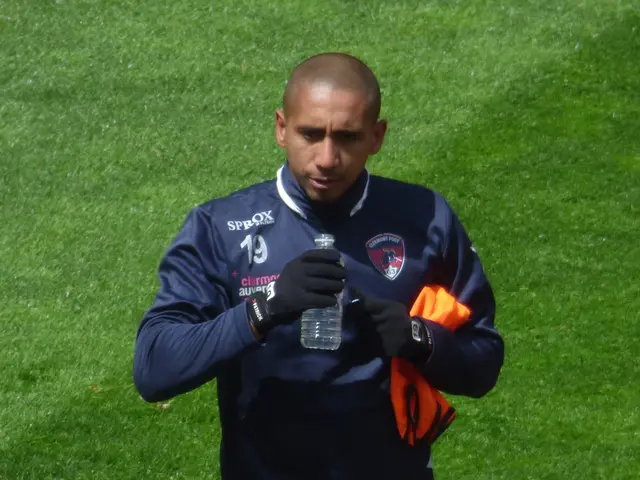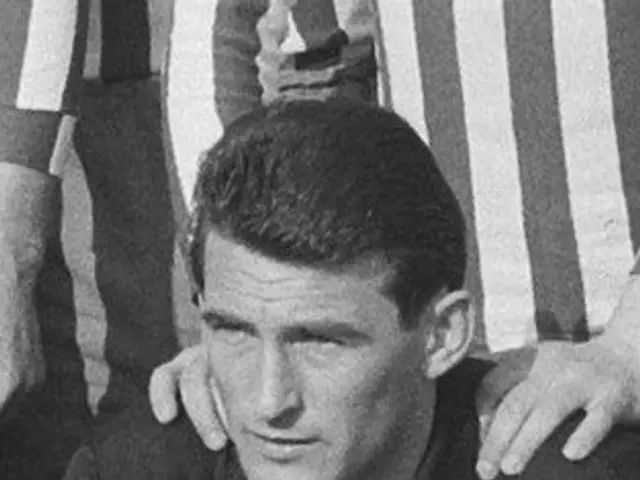Essential Role of Fluid Intake for Athletes and Muscular Builders
The Importance of Hydration for Athletes and Bodybuilders
Hydration is a vital aspect often overlooked by athletes and bodybuilders, playing a significant role in their performance and muscle growth. Water, making up approximately 60% of the human body, is essential for all bodily functions, and its role is amplified in physically active individuals due to increased water loss during intense exercise.
Muscles require hydration to function correctly. Water facilitates the transportation of nutrients and the removal of waste products like lactic acid, which build up during intense physical activity, thereby preventing muscle fatigue, cramps, and injury.
Adequate hydration is crucial for joint lubrication, as joints are surrounded by synovial fluid, predominantly water, ensuring proper lubrication. Hydration also aids in thermoregulation by helping the body manage heat through sweat and other mechanisms. Proper thermoregulation prevents overheating and heat-related illnesses.
Hydration aids in the delivery of essential nutrients to muscles during and after workouts, including glucose and amino acids, ensuring muscles receive fuel for recovery and growth. Dehydration can negatively impact cognitive functioning, mental focus, and cognitive performance—factors that are crucial for athletes.
Hydration significantly impacts athletic performance, particularly for endurance athletes. Dehydration can cause a decrease in cardiovascular performance, making long-duration activities more challenging to maintain. In strength training and bodybuilding, hydration plays a significant role in strength and muscle growth by facilitating the transport of amino acids to muscles for recovery. Dehydration can hinder protein synthesis, the process by which muscles rebuild and grow after a workout.
Recovery is also dependent on proper hydration, as it helps eliminate metabolic waste like lactic acid from muscles, speeding up recovery, reducing soreness, and preventing cramping.
Dehydration can present as mild to severe symptoms, including dry mouth and throat, fatigue, dizziness, dark-colored urine, muscle cramps, weakness, increased heart rate, confusion, rapid breathing, low blood pressure, and sunken eyes. It's crucial to recognize the signs of dehydration to address it promptly and avoid negative impacts on performance and health.
The general recommendation for daily water intake is about 8 cups (2 liters) for adults. Active individuals, particularly athletes and bodybuilders, require more fluid intake to compensate for sweat loss during exercise. Pre-exercise hydration involves drinking about 500 mL (17 ounces) of water 2 hours before a workout to ensure well-hydration. During a workout, aim to drink 7-10 ounces of water every 10-20 minutes, especially for long-duration activities. Post-workout hydration involves drinking 500-700 mL of water within 30 minutes of finishing the workout, followed by continued hydration throughout the day. Electrolyte replacement may be beneficial for extended, high-intensity workouts to avoid imbalances that can lead to cramping or fatigue.
Ensure consistent, regular hydration by carrying a water bottle throughout the day and monitoring urine color to gauge hydration levels. When in doubt, listen to your body and address any signs of dehydration promptly.
QnA Section
Q1: Can I drink too much water?A1: Yes, consuming too much water can lead to hyponatremia, a condition caused by an imbalance of electrolytes in the body.
Q2: Do I need sports drinks, or is water enough?A2: For most athletes, water is sufficient, but sports drinks with electrolytes may be beneficial during long or intense workouts.
Q3: Can dehydration affect my muscle gains?A3: Yes, dehydration can hinder muscle growth by limiting the delivery of nutrients to muscles and slowing down recovery.
Q4: Does the weather affect how much I should hydrate?A4: Yes, hot or humid weather increases water loss through sweat, requiring increased water intake to maintain hydration.
Q5: How do I know if I'm properly hydrated?A5: Pay attention to the color of your urine—pale yellow indicates proper hydration. Additionally, monitor how you feel during workouts, as fatigue, dizziness, or muscle cramps can be signs of dehydration.
- Proper hydration is crucial for athletes and bodybuilders during intense exercise to prevent muscle fatigue and cramps.
- Hydration plays a significant role in the transportation of nutrients to muscles, facilitating muscle growth and recovery.
- Dehydration can negatively impact cognitive functioning and mental focus, factors that are crucial for athletes.
- Endurance athletes require adequate hydration to maintain cardiovascular performance during long-duration activities.
- Hydration significantly impacts the process of protein synthesis, aiding in muscle growth after a workout.
- Proper hydration post-workout helps eliminate metabolic waste, reducing soreness and preventing cramping.
- Dehydration can present as mild to severe symptoms, such as dry mouth and dark-colored urine, and should be addressed promptly to avoid negative impacts on performance and health.
- To maintain optimal hydration, keep a regular water intake throughout the day, monitor urine color, and address signs of dehydration as needed, as water is essential for fitness-and-exercise, health-and-wellness, sports, cardio, strength, and endurance.







